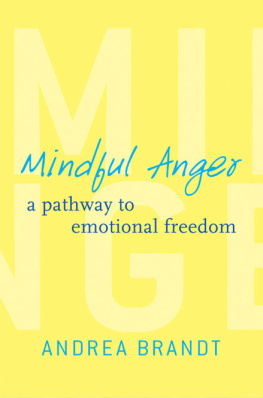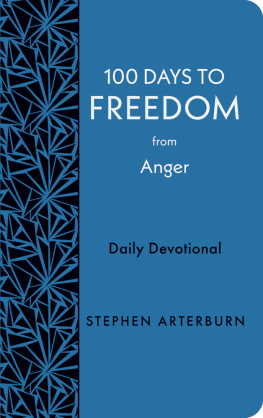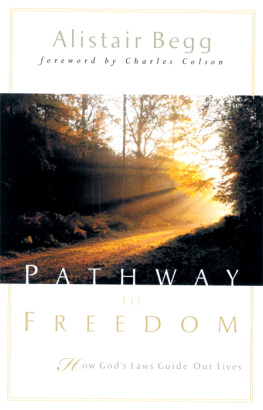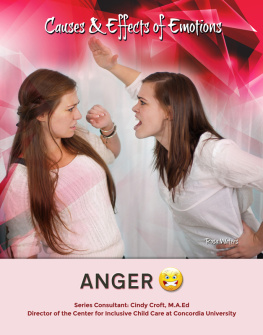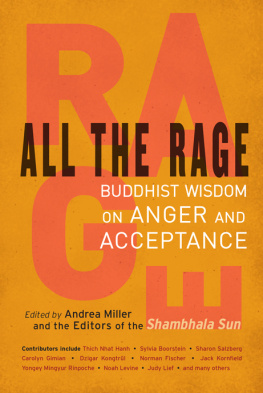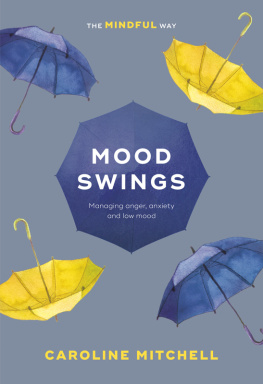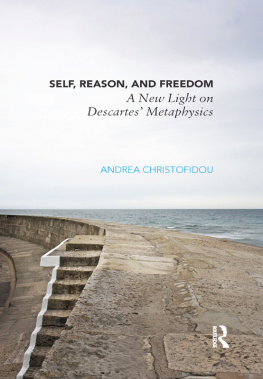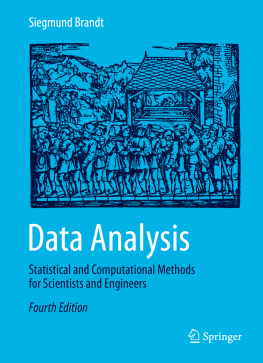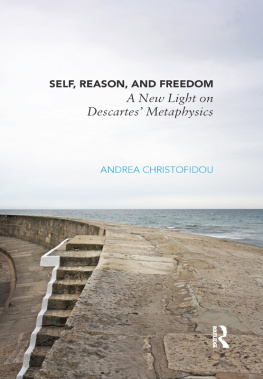Andrea Brandt - Mindful Anger: A Pathway to Emotional Freedom
Here you can read online Andrea Brandt - Mindful Anger: A Pathway to Emotional Freedom full text of the book (entire story) in english for free. Download pdf and epub, get meaning, cover and reviews about this ebook. year: 2014, publisher: W. W. Norton & Company, genre: Home and family. Description of the work, (preface) as well as reviews are available. Best literature library LitArk.com created for fans of good reading and offers a wide selection of genres:
Romance novel
Science fiction
Adventure
Detective
Science
History
Home and family
Prose
Art
Politics
Computer
Non-fiction
Religion
Business
Children
Humor
Choose a favorite category and find really read worthwhile books. Enjoy immersion in the world of imagination, feel the emotions of the characters or learn something new for yourself, make an fascinating discovery.
- Book:Mindful Anger: A Pathway to Emotional Freedom
- Author:
- Publisher:W. W. Norton & Company
- Genre:
- Year:2014
- Rating:4 / 5
- Favourites:Add to favourites
- Your mark:
- 80
- 1
- 2
- 3
- 4
- 5
Mindful Anger: A Pathway to Emotional Freedom: summary, description and annotation
We offer to read an annotation, description, summary or preface (depends on what the author of the book "Mindful Anger: A Pathway to Emotional Freedom" wrote himself). If you haven't found the necessary information about the book — write in the comments, we will try to find it.
Andrea Brandt: author's other books
Who wrote Mindful Anger: A Pathway to Emotional Freedom? Find out the surname, the name of the author of the book and a list of all author's works by series.
Mindful Anger: A Pathway to Emotional Freedom — read online for free the complete book (whole text) full work
Below is the text of the book, divided by pages. System saving the place of the last page read, allows you to conveniently read the book "Mindful Anger: A Pathway to Emotional Freedom" online for free, without having to search again every time where you left off. Put a bookmark, and you can go to the page where you finished reading at any time.
Font size:
Interval:
Bookmark:
Mindful Anger
A PATHWAY TO
EMOTIONAL FREEDOM
Andrea Brandt
with Brookes Nohlgren

W. W. NORTON & COMPANY
NEW YORK LONDON
To JP, for your propensity to make things better. It finally worked on this project! I love you.
Contents
W hen I was growing up, both of my parents repressed their anger. As a result, they were like two simmering volcanoes ready to blow at any moment. The explosion never came. Instead, I was treated with the kind of pervasive abuse that is harder to see than hitting or slapping but just as devastating. It was simply part of the fabric of the family environment.
My parents marriage was deeply troubled, and my father was unfaithful. Threatened with losing him, my mother turned all her energy into keeping her only child close. Her anger came out in threats, tension, and complaints: After all Ive done for you, you treat me like this was a particularly popular theme song. When her tongue was loosened by a few social drinks, my mother would criticize me for having close relationships with my grandmother or auntany connection that might challenge my ties to her. On the other hand, she was often too tired from work to give me the affection and fun experiences I so needed.
My anger mounted with each year, but, not surprisingly, my parents discouraged me from expressing and releasing it. I found ways to get back, nevertheless. For example, at 26, I briefly married a man I didnt love, mostly for the thrill of seeing my parents stage an elaborate and very costly wedding. They paid, but so did I. When I married Buzz, I was cut off from my feelings, living in my headmostly intellectualizing my experiences. In the second year, Buzz decided to go into therapy, and soon, his psychologist suggested that I come in for my own sessions. I agreed to go, and it wasnt long before my then-husband and I were also in group therapy together.
One day in group, a man made a remark that triggered the repressed anger and frustration that I had been holding inside for so long. I dont even remember what he said to me, but Ill never forget my reaction. Suddenly I stood up, started screaming, and began swinging my purse around in the air. Seated on a couch across the room, Buzz was looking at me as if he wondered what kind of woman he had marriedor whether his serene wife had somehow been replaced by this raging out-of-control twin.
I had become the erupting volcano. I totally lost control. I was so upset that I started for the door to leave the room, but the therapist insisted I stay. I did, only to break down in sobs. For four days afterward, I cried in the shower each morning. Not long after, Buzz and I divorced.
During this early experience with my anger, I didnt understand the best way to constructively express and release these feelings. Yet a lot of pent-up anger was released. As if struck by a lightning bolt, I was startled by the power of this event. I felt lighter, freer. I began to sense that there was value for me, and for others, in tapping into anger. As time went on, exploring my anger helped me to form healthy relationships, to engage people in a more genuine way, and to understand that I had value beyond work. In my family, achievement had been the only goal. I came to see that a lot more elements contributed to becoming a happy and well-rounded person. Anger, it turned out, wasnt a bad thing. Instead, it was the key to emotional freedom.
For me, the engine of this transformation was mindfulness, a thoughtful and intense focus on the present moment in which we allow sensations and feelings to reveal themselves without judgment. By quieting our mind, we can focus on the present and explore what our body, mind, and emotions are trying to tell us. This heightened state of awareness has long been practiced in many of the worlds spiritual circles, and it is now being integrated into approaches to psychotherapy and taught as a practical life skill. Mindfulness is the number one tool required for breaking our negative anger habits and resolving the issues that cause anger in the first place. This opens the door to a richer appreciation of the cornucopia of emotions that can make life the rewarding experience it was meant to be, rather than a repressive monologue in which we often seem to be at war with the world.
LOOKING AT ANGER
My transformative experience provides examples of two expressions of anger. The shrieking, purse-swinging banshee who disrupted the therapy session may look more like anger, but the quiet, detached woman who walked in the door was equally angry and just as troubled. When anger comes out as rage, it is overtly destructive to the persons relationships and success in life. When anger is suppressed, it turns up as passive-aggressive and other self-defeating behaviors, habits, addictions, and even illness.
There are many ways we can respond to the feeling of anger. Most of them dont do us any good. Anger that is unleashed and out of control comes with a high price tagboth for ourselves and those we interact withwith consequences ranging from mild to severe. At its worst, we see the deadly results on the TV news each daythe violence of domestic abuse, terrorism, and school shootings. We watch as celebrities rants and abusive tirades are caught on video and audio recordings, only to be replayed over and over again, threatening to damage or destroy their careers. Though most of us, thankfully, will never be touched by this height of violence, we all have within us the mechanism that makes this and other types of violence possible. Anger may come to us during a current experience or when thinking about the past. Often we get angry when things dont go our way or when we feel threatened.
Weve all suffered the repercussions of acting out anger. When our behavior is angry, we damage that which is most valuable to us. We create distance in our relationships, crush our childrens self-esteem, drive away business deals, erode our health, and undermine our own peace and well-being. None of us have gotten this far in life without giving or receiving some of these scars.
Perhaps this doesnt sound much like you. You really dont experience a lot of anger, and you never lash out. Maybe instead of expressing your anger outwardly, you stuff it all inside, where it feels safer and more manageable. Maybe you cant recall ever feeling anger at all. Is it possible that youve been spared this burden? No, not if youre human.
We all have anger. Its one of the most common of human emotions, so, if youre not feeling it, then youre probably unconsciously burying it instead. But anger that is buried isnt actually gone. Out of sight is rarely out of mind, and it certainly doesnt mean it no longer exists. In fact, hidden or covert anger may be just as damaging as the overt, outwardly destructive kindonly it wreaks havoc from the inside out. All sorts of physical and emotional problems can stem from suppressed anger: headaches, digestive problems, and insomnia, just to name a few. Cancer and heart disease, the leading causes of death in the United States, both have been linked to unresolved anger.
Buried anger is lying in wait and will, when it can, resurface. Thats because anger is an emotiona form of energy in motion, if you will. It is expressed in a continuum, with rage and aggression at the top, and frustration, annoyance, and irritation at the bottom, and everything else in between. If we view anger as an unacceptable emotion, we may decide that frustration, disappointment, and irritability, although not pleasant, are easier for ourselves and others to accept. Yet these more subtle forms of anger still prevent us from having fulfillment or joy in life. Although were not openly expressing anger, it is leaking out all the time.
How do you know if you suffer from hidden anger? The best indicator may be what is not being seen. If you dont feel or experience anger somewhat regularly, you should consider the possibility that you fall into this group. To find out whether you do, in fact, have an anger problem, overt or covert, take a moment to answer a few key questions:
Next pageFont size:
Interval:
Bookmark:
Similar books «Mindful Anger: A Pathway to Emotional Freedom»
Look at similar books to Mindful Anger: A Pathway to Emotional Freedom. We have selected literature similar in name and meaning in the hope of providing readers with more options to find new, interesting, not yet read works.
Discussion, reviews of the book Mindful Anger: A Pathway to Emotional Freedom and just readers' own opinions. Leave your comments, write what you think about the work, its meaning or the main characters. Specify what exactly you liked and what you didn't like, and why you think so.

